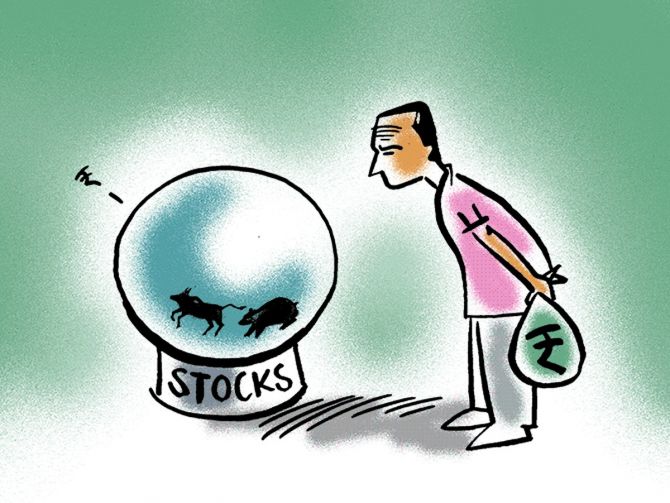'It is less dependent on imported capital.'

With the first half of CY21 drawing to a close, New York-based David Jones, senior investment strategist, BofA Global Research, tells Puneet Wadhwa that equities will generate lower returns in the second half. He expects those returns to be more volatile.
The markets are now accustomed to excess liquidity. Will the Federal Reserve go ahead with its plans at the cost of sacrificing stability in global financial markets?
The Fed will not press ahead with a tighter financial policy if doing so constitutes a serious financial stability risk to the US.
So, we can expect it to move slowly and deliberately, carefully signalling its intent and monitoring US financial markets for signs of dangerous excess.
But the unvarnished truth is that the Fed does not prioritise non-US financial markets in its decision-making, except to the extent that chaos in non-US markets may significantly impact the US via financial flows or through trade and other real-world channels.
If the optimal US monetary policy is to raise rates, even though higher rates may cause problems in some emerging markets (EMs), the Fed is going to move ahead regardless.
How do you see other global central banks preparing themselves for the Fed taper and the life after?
EM rates (and global rates more generally) are headed higher.
We have already seen many EM central banks (Mexico, Brazil, Russia, Hungary, and the Czech Republic) raise their policy rate targets in expectation of rising global rates.
Many DM (Developed Markets) central banks (Norway, Canada, and New Zealand) are soon to follow.
Rising US rates are especially impactful on EMs running large current account deficits, as they need to raise domestic rates higher and faster to attract capital, whatever their domestic growth outlook may be.
In this respect, India is more fortunate than other EMs, as it is less dependent on imported capital.
The equity markets of which regions/countries look the most appealing to you from a year's perspective?
Europe offers a number of attributes that are attractive to investors.
First, the vaccination rate is rapidly climbing and the re-opening of the economy is now well underway, so near-term growth should be impressive.
Second, European equity indices have relatively higher exposure to late cyclical sectors (banks, industrials, and energy), which we expect will outperform at this stage of global recovery.
And lastly, we expect the euro to continue to strengthen, which should benefit unhedged foreigners owning European equities.
Do you think global equity markets, especially India, are in a bubble zone or are nearing one?
We do not think equities are in a bubble yet.
The BofA Bull & Bear Indicator, a proprietary measure of global investor sentiment, is currently at 6.4 on a scale of 0 to 10 (2 and lower is a buy signal, 8 and higher is a sell signal).
By this measure, as well as other proprietary models, global equities look modestly expensive.
Equities will generate a lower return in the second half of this year than in the first half; expect those returns also to be more volatile.
We prefer Europe and some EMs over the US at this point, though Indian stock valuations are somewhat less attractive.
What are your sector preferences -- across the globe and in the Indian context?
We think this is the time to buy the last of the laggards, like UK/European banks and resources, Japanese consumer discretionary, and Chinese/EM banks and industrials.
Regarding US equities, we still think it is fine to be in late-stage cyclical like energy and financials, but we will barbell that exposure with defensive sectors like staples and utilities on the expectation that growth may disappoint in the second half.
A number of experts see inflation as transitory. Are the markets in for a rude shock?
The consensus theme seems to be that inflation is transitory, but growth is permanent.
The contrarian would say growth is going to disappoint and inflation is going to be stickier than expected.
One can play the contrarian theme by going long EMs and short Europe, or by going long utilities and short banks.
We are firmly in the inflation camp and believe that inflation will be higher and stickier than the consensus suggests.
Everyone acknowledges the near-term, cyclical factors are generating higher prices: Supply bottlenecks, labour shortages, stimulus-fuelled consumption, record low rates, etc.
These have translated into rapidly escalating asset, industrial and consumer prices.
Price increases will not subside so quickly because inflation is not only a cyclical story but also a secular trend.
CY20 marked the end of the 40-year era of steadily dropping inflation expectations and rates.
We are now entering an era of higher taxation, wealth redistribution, increased regulation, and a retreat from globalisation, and these trends will keep inflation from fading anytime soon.
Feature Presentation: Rajesh Alva/Rediff.com











